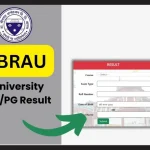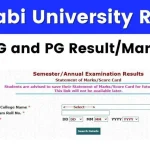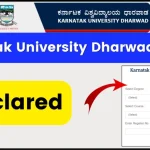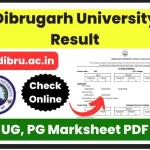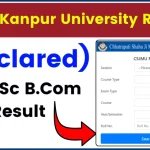$1312 Stimulus Payment: As November 2024 approaches, the announcement of a $1,312 stimulus payment has sparked widespread interest. This payment, aimed at providing financial relief to eligible residents, is part of ongoing efforts to mitigate economic pressures and support families during challenging times. If you’re wondering whether you qualify or how to claim this payment, this article provides a detailed guide.
$1312 Stimulus Payment- Key Highlights
| Aspect | Details |
|---|---|
| Payment Amount | $1,312 |
| Eligibility Criteria | Based on income thresholds, residency, and tax filing requirements. |
| Application Deadline | Check official announcements for deadlines specific to your jurisdiction. |
| Payment Date | Scheduled for November 2024. |
| How to Apply | Applications typically require filing a tax return or submitting an online form through official portals. |
| Official Resources | IRS Economic Impact Payments |

Conclusion
The $1,312 stimulus payment in November 2024 offers valuable financial support for eligible residents. By understanding the eligibility criteria, application process, and payment schedule, you can ensure you receive your payment without delay. Stay informed through official resources and take proactive steps to manage your finances effectively.
What Is the $1,312 Stimulus Payment?
The $1,312 stimulus payment is part of a financial relief initiative designed to assist individuals and families facing economic challenges. Stimulus payments have been used in the past to help people manage rising costs, pay bills, and stimulate economic activity.
Who Is Eligible for the $1,312 Stimulus Payment?
Eligibility criteria for stimulus payments often vary depending on the program, but common requirements include:
1. Income Thresholds
Stimulus payments are typically targeted toward middle- and low-income households. For example:
- Single Filers: Income under $75,000 for full payment.
- Married Filing Jointly: Income under $150,000 for full payment.
- Payments phase out for higher incomes.
2. Residency
- Recipients must be U.S. residents or legal citizens.
- Non-resident aliens are generally ineligible unless specified by the program.
3. Tax Filing Requirements
Eligibility is often determined based on your most recent tax return. Ensure your 2023 tax return is accurate and filed on time.
4. Dependents
Additional payments may be provided for dependents, typically under 18 or qualifying adults who rely on you financially.
Example:
Anna, a single mother earning $45,000 annually, qualifies for the full payment of $1,312. She also receives an additional amount for her two children, increasing her total payment.
How to Apply for the $1312 Stimulus Payment
Depending on the administering body, the application process may include:
Step 1: File Your Taxes
Ensure your tax return is submitted. This document helps determine your income, dependents, and banking information for direct deposits.
Step 2: Check Your Eligibility
Visit the IRS website or your local government portal to confirm eligibility criteria and deadlines.
Step 3: Submit Required Documents
For those who didn’t file taxes, an online form or portal might be available to provide necessary information, such as income details and banking information.
Step 4: Monitor Your Application Status
Use official tools like the IRS Get My Payment tool to track the status of your application and payment.
When Will Payments Be Distributed?
The payment schedule varies depending on the program. For the $1,312 payment:
- Direct Deposits: These will typically be the first payments issued, often arriving within days of processing.
- Paper Checks: Mailed checks may take longer, often arriving weeks after direct deposits.
- Prepaid Debit Cards: Some recipients may receive their payment via debit card.
Student Loan Forgiveness: How to apply for Student Loan Forgiveness Program in the USA
$3600 & $3000 American Rescue Plan Child Tax Credit: Know Eligibility & Payment Dates
Expected Payment Date:
Payments are scheduled for November 2024, with direct deposits expected earlier in the month and paper checks following shortly after.
Why the $1,312 Payment Matters
This stimulus payment is designed to address several pressing economic concerns:
- Rising Costs: With inflation driving up prices, this payment offers much-needed financial relief for households.
- Economic Stimulus: By increasing consumer spending, stimulus payments contribute to local and national economic growth.
- Support for Vulnerable Groups: Targeted payments help low-income individuals, families with dependents, and those most affected by economic challenges.
Frequently Asked Questions (FAQs)
Q1: How do I know if I qualify for the $1,312 payment?
Eligibility is typically based on income thresholds, tax filings, and residency. Check official announcements for specific criteria.
Q2: Can I receive the payment if I didn’t file taxes?
Yes, in some cases, non-filers can provide their information through an online portal to claim their payment.
Q3: Are stimulus payments taxable?
No, stimulus payments are considered tax credits and are not taxable income.
Q4: How can I track my payment?
Use the IRS Get My Payment tool or your local government’s equivalent service to check your payment status.
Q5: What if I didn’t receive my payment?
Contact the administering agency, such as the IRS, to resolve any issues. Ensure your information is accurate and up-to-date.
Practical Tips for Managing Your Stimulus Payment
- Prioritize Essentials: Use the payment to cover critical expenses like rent, utilities, and groceries.
- Pay Down Debt: Consider reducing high-interest debt to improve your financial stability.
- Save for Emergencies: If possible, allocate a portion of the payment to an emergency fund.
- Support Local Businesses: Using your payment locally can help boost the economy in your area.
How to Stay Informed
To ensure you don’t miss important updates regarding the $1,312 payment:
- Visit Official Websites: Rely on trusted sources like the IRS Economic Impact Payments page for accurate information.
- Subscribe to Updates: Sign up for alerts from government agencies to receive timely notifications.
- Avoid Scams: Be cautious of unsolicited messages or websites claiming to offer early access to payments.




